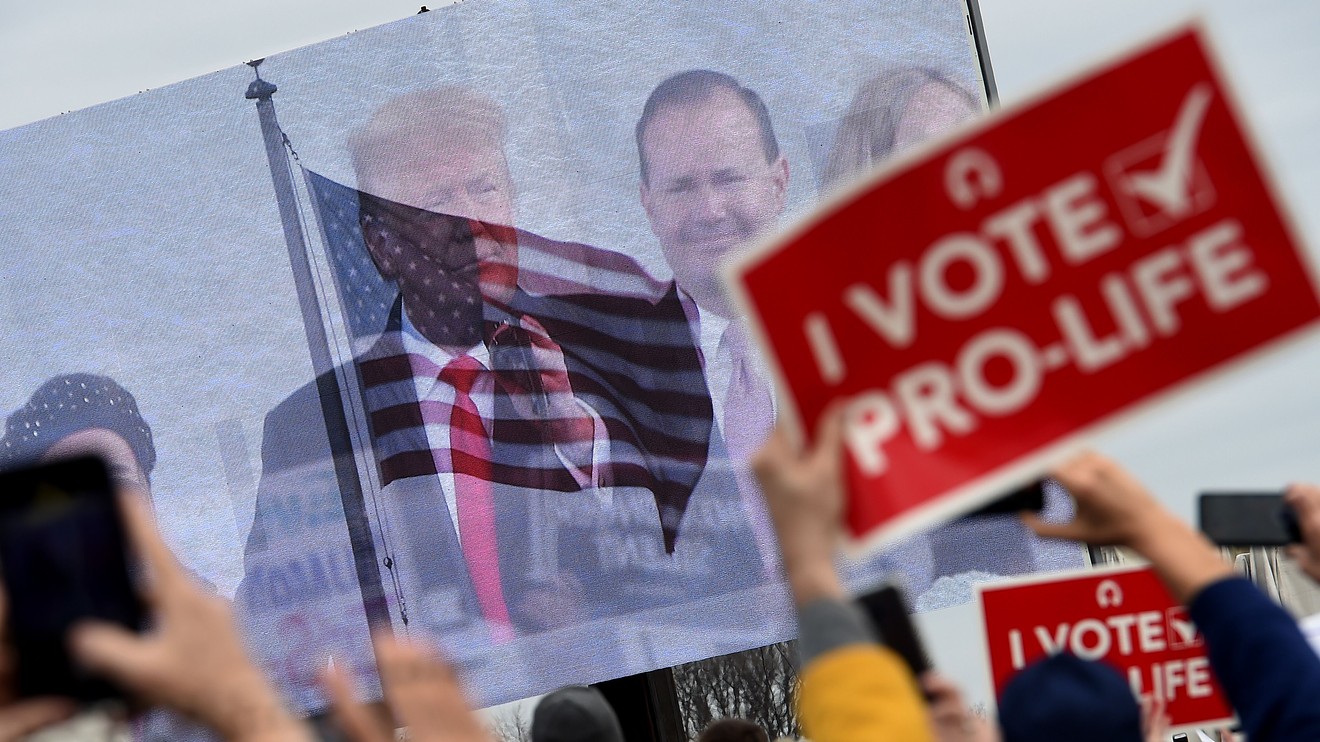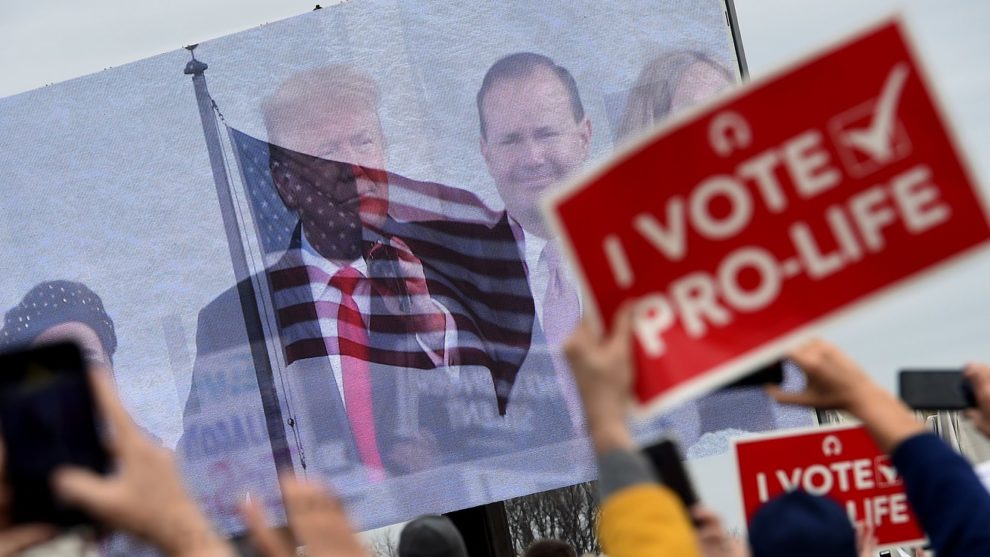
President Trump on Friday became the first president to speak in person at the anti-abortion March for Life rally, on the heels of a new poll registering record-high dissatisfaction with U.S. abortion laws.
“Unborn children have never had a stronger defender in the White House,” Trump said in a speech. “And as the Bible tells us, each person is wonderfully made.”
He went on to slam Democrats for embracing “the most radical and extreme positions” and backing “taxpayer-funded abortion, all the way up until the moment of birth.” (Critics say that such procedures do not occur.)
The March for Life says its mission is to “promote the beauty and dignity of every human life by working to end abortion.” Trump previously spoke at the rally remotely, while Vice President Mike Pence in 2017 became the first U.S. vice president to attend.
March for Life president Jeanne Mancini applauded the Trump administration in a statement earlier in the week, noting that the administration had appointed anti-abortion judges and federal workers, cut taxpayer funding for abortions and called for an end to late-term abortions. “President Trump and his Administration have been consistent champions for life and their support for the March for Life has been unwavering,” she said.
The results of a new Gallup poll released Wednesday suggested that discontent over U.S. abortion policy was at an all-time high (58%) and satisfaction was at an all-time low (32%). The survey of more than 1,000 adults, conducted earlier this month, tracked an upward trend in those who wanted abortion policy to be less restrictive.
Traditionally, Gallup said, most people dissatisfied with abortion policy wanted stricter laws — but since 2017, the year Trump took office, the share of respondents desiring less-strict abortion policy has risen. Now, “roughly equal percentages of U.S. adults now are dissatisfied and favor less strict laws (22%) as are dissatisfied and want stricter laws (24%),” the report’s authors said.
Mounting support for easing abortion policy was fueled by a rise in Democrats and independents expressing such sentiments over the last 10 years, the survey found.
A flurry of states last year enacted restrictive anti-abortion laws, including a handful that banned abortion past a certain point in a pregnancy, and Alabama, which effectively outlawed abortion in most cases. Many of these laws have been blocked in court from taking effect.
The Supreme Court will also hear arguments this year on June Medical Services v. Gee, which involves a Louisiana law requiring abortion providers to have admitting privileges at a local hospital. The court previously struck down a similar provision in Texas in 2016’s Whole Woman’s Health v. Hellerstedt.
“Americans have grown increasingly dissatisfied with the nation’s abortion policies since 2017, largely reflecting Democrats’ — and to a lesser extent, independents’ — mounting view under Trump that the laws are too strict,” wrote the authors of the Gallup report. “While this may partly be a reaction to Trump’s rhetoric on the issue, it also aligns with an increase in abortion restrictions.”
A separate poll published Wednesday by the Kaiser Family Foundation found that 59% of Americans believe abortion should be legal in most (32%) or all (27%) cases, while just 11% thought the procedure should be illegal in all cases. Nearly seven in 10 respondents said they didn’t want the landmark Supreme Court ruling Roe v. Wade, which affirmed the right to have an abortion, to be overturned. Democrats and independents were most likely to express that opinion, while a majority of Republicans (57%) said they wanted Roe overturned.
But many respondents also backed some state abortion restrictions, including 69% who endorsed policies requiring the procedure be performed only by doctors with hospital-admitting privileges, 66% who supported 24-hour waiting periods between consultation with a provider and the procedure, and 57% who supported a requirement that doctors show and describe ultrasound images to abortion seekers. Still, criminalizing abortion (that is, through fines or prison time) for providers and abortion-seekers proved unpopular.
A NPR/PBS News/Marist poll of 944 U.S. adults released in June 2019 echoed those results, showing that 77% of Americans wanted to keep Roe v. Wade in place, but many still wanted additional abortion restrictions or policy changes.
Among the more than three-quarters of Americans who broadly supported Roe, 26% wanted the Supreme Court to keep it but add more restrictions, and 14% supported keeping it but reducing some restrictions, according to that poll. Some 21% wanted to see Roe expanded to secure abortion rights under any circumstance, while 16% wanted to keep it the way it is.
This story was originally published Jan. 23, 2020, and has been updated.











